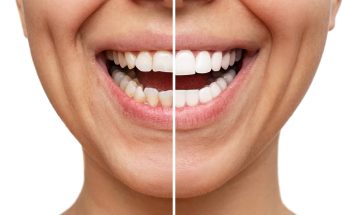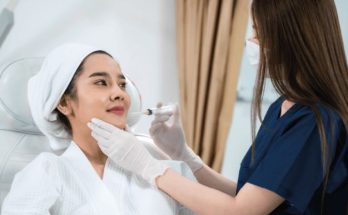When most people think of cosmetic dermatology, they picture smoother skin, fewer wrinkles, and a more youthful glow. And while aesthetic improvements are certainly part of the appeal, many patients are surprised to discover just how much more they gain from these treatments.
Cosmetic dermatology isn’t just about enhancing what’s on the surface — it’s about supporting confidence, emotional well-being, and even lifestyle habits. The results often go far beyond what’s visible in the mirror.
Here are five things cosmetic dermatology can boost that have little to do with appearance — and everything to do with feeling better in your own skin.
1. Self-Confidence and Emotional Resilience
The most common feedback dermatologists hear from patients after a cosmetic procedure isn’t, “I look younger.” It’s often, “I feel like myself again.”
Cosmetic concerns — whether it’s persistent acne scars, volume loss, or sun damage — can quietly erode confidence over time. People may avoid social situations, feel uncomfortable in photos, or hesitate to speak up in meetings. These issues, while often minimized, have a real impact on emotional well-being.
Cosmetic dermatology services help patients reconnect with a version of themselves that feels strong and authentic. A small improvement — like reducing the shadowing under tired eyes or softening deep forehead lines — can restore a sense of vitality that positively influences how a person navigates the world.
When someone feels good about their appearance, they tend to carry themselves with more confidence, which often leads to better social, professional, and personal outcomes.
2. Quality of Life and Daily Comfort
Not all cosmetic treatments are purely about looks. Many improve physical comfort as well.
Take Botox, for example. While it’s best known for smoothing wrinkles, it’s also FDA-approved for treating chronic migraines, excessive sweating (hyperhidrosis), and even teeth grinding (bruxism). Dermal fillers can be used to correct asymmetry that causes discomfort or functional issues. Laser treatments that reduce redness or pigmentation can make it easier to go makeup-free, saving time and reducing skin irritation.
Even simple improvements, like treating broken capillaries or minimizing persistent acne scars, can help patients feel less self-conscious and more at ease during everyday interactions. These changes may be subtle, but they often remove quiet sources of stress that have built up over years.
3. Motivation for Healthier Lifestyle Choices
Cosmetic dermatology often acts as a catalyst for broader wellness. After investing in their skin, patients frequently feel more motivated to make healthier choices in other areas of their lives — including diet, sleep, hydration, and sun protection.
A patient who commits to a microneedling series or a chemical peel may become more mindful about their skincare routine, reduce alcohol intake, or increase their water consumption to prolong results. Someone who receives body contouring treatments might feel inspired to stay active and eat well.
These shifts aren’t about chasing perfection. They’re about reinforcing self-care habits that benefit both the skin and the body long-term. By taking visible steps toward wellness, patients often internalize a stronger sense of control over their health.
4. Professional Presence and Career Confidence
Whether it’s fair or not, appearance can influence how we’re perceived professionally — especially in leadership, client-facing, or high-visibility roles. Looking tired, stressed, or disengaged can affect how others interpret your energy or readiness.
Cosmetic dermatology services provide tools to help people look as capable and vibrant on the outside as they feel on the inside. Subtle treatments — like smoothing deep frown lines or refining skin texture — can reduce the appearance of fatigue or stress. The result isn’t a dramatic change, but a refreshed version of yourself that matches your mindset and ambition.
For professionals navigating competitive industries or frequent public speaking, these adjustments can provide a confidence boost that translates directly to performance.
5. Mental Health and Social Ease
Skin insecurities can take a real toll on mental health. Studies have shown that chronic skin conditions, even when considered “mild,” are linked to higher rates of anxiety, depression, and social withdrawal. While medical dermatology treats the underlying causes of many skin issues, cosmetic dermatology can address lingering signs that still impact a patient’s self-image.
Improving these areas can reduce the emotional burden associated with skin-related concerns. Patients who once avoided group photos, public events, or dating may feel more open and relaxed in social settings. This boost in ease and self-assurance often leads to deeper connections and a stronger sense of belonging.
Of course, cosmetic dermatology isn’t a cure for mental health challenges. But for many, it can be one important piece of the puzzle — offering relief, empowerment, and a tangible step toward reclaiming self-worth.
Cosmetic dermatology is often framed as a luxury or vanity service. But for the patients who experience its broader effects, it’s something more: a deeply personal tool for healing, confidence, and transformation.
Whether it’s finding peace of mind in your reflection, embracing your social life with newfound comfort, or reinforcing a commitment to wellness, the benefits extend far beyond what the eye can see.
If you’re exploring cosmetic dermatology services, consider not only how you want to look — but how you want to feel. The most powerful transformations often begin with subtle shifts that reconnect you with your best self.




